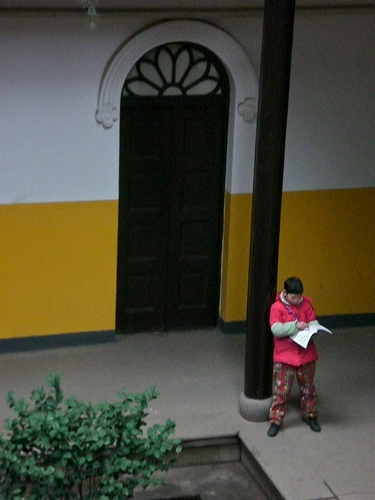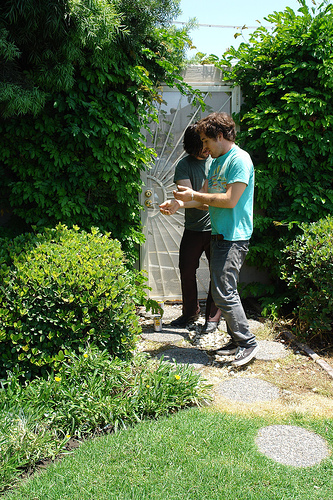MLA’s Scholarly Editions: Powering Literary Preservation
Introduction
In an age where digital distractions flicker like fireflies in the night, the quiet work of preserving literary heritage often goes unnoticed. Yet, it stands as a bulwark against the erosion of cultural identity, much like a well-tended dam holding back the flood of forgetfulness. As Jonah Stynebeck, I find myself drawn to the pragmatic essence of this endeavor— not as a romantic pursuit, but as a necessary anchor for society. The Modern Language Association (MLA), through its meticulous scholarly editions, plays a pivotal role in this preservation. Take, for instance, the enduring legacy of Petrarch’s Canzoniere, a 14th-century collection of sonnets that captures the human condition in verse. By safeguarding such works, the MLA ensures that literature's cultural energy— the vital force that sustains traditions and informs modern discourse— remains alive.
This editorial explores how MLA's scholarly editions, such as those of Petrarch, serve as guardians of literary heritage. Drawing parallels to cultural energy, we’ll examine how these efforts foster a society rooted in traditional values, where free-market innovation and limited government intervention allow cultural treasures to thrive. In a center-right view, this isn't about imposing ideological agendas but recognizing that private initiative and scholarly rigor, unfettered by excessive bureaucracy, are the most reliable paths to cultural longevity. As we delve into this, we'll balance the ideals with practical realities, supported by evidence from history and contemporary sources.

An illuminated manuscript page from Petrarch's Canzoniere, symbolizing the timeless interplay of poetry and cultural preservation.
The Role of Scholarly Editions in Literary Preservation
Scholarly editions, as produced by the MLA, are far more than mere reprints; they are rigorous reconstructions that bridge the gap between ancient texts and modern readers. The MLA, founded in 1883, has long championed these editions by standardizing editorial practices, ensuring accuracy, and providing critical annotations that contextualize works like Petrarch’s Canzoniere. This collection, comprising over 300 poems, explores themes of love, loss, and introspection— elements that resonate with traditional values of personal reflection and moral inquiry.
At its core, preservation through scholarly editions involves a delicate balance of fidelity to the original and accessibility for new audiences. Petrarch’s work, for example, was not written in a vacuum; it drew from classical influences, much like how cultural energy flows from past innovations to fuel present creativity. Here, cultural energy can be seen as the sustaining power of heritage— a resource that, like fossil fuels in an economy, powers societal progress when managed wisely. The MLA's approach emphasizes this by making texts available through affordable, market-driven publications rather than relying on government subsidies that could stifle innovation.
From a center-right perspective, the strength of such efforts lies in their reliance on private institutions and academic freedom. Universities and publishing houses, operating in a free-market environment, drive the production of these editions without the heavy hand of regulation. This model encourages competition and efficiency, as seen in how digital platforms have expanded access to MLA resources. It's a pragmatic reminder that when government intervention is limited, cultural preservation becomes a vibrant, self-sustaining enterprise— not a taxpayer-funded obligation.
Analysis: Parallels Between Scholarly Editions and Cultural Energy
To fully appreciate the MLA's contributions, we must draw parallels between scholarly editions and the broader concept of cultural energy. Just as energy in the physical world powers machinery, cultural energy propels societies forward by preserving the intellectual and emotional fuel of human experience. Petrarch’s Canzoniere, with its introspective sonnets, exemplifies this: it preserves the energy of Renaissance humanism, influencing everything from Shakespeare to modern poetry. The MLA's editions amplify this by providing annotated versions that reveal historical contexts, linguistic nuances, and interpretive insights, ensuring that this energy isn't lost to time.
However, this preservation isn't without challenges. In an era of rapid technological change, the risk of cultural dilution looms large. Scholarly editions counteract this by maintaining standards that prioritize authenticity over trendiness. For instance, the MLA's guidelines help scholars navigate textual variants, much like how a well-regulated market ensures quality in goods and services. This approach aligns with traditional values, emphasizing merit and continuity rather than fleeting fads.
Yet, a balanced analysis requires acknowledging potential pitfalls. Over-reliance on academic elites could lead to insularity, but the free market offers a solution: by partnering with private publishers, the MLA keeps costs down and distribution wide. As The Wall Street Journal notes in its coverage of cultural institutions, market-driven models have revitalized interest in classics like Petrarch, with sales of annotated editions surging through online retailers. This underscores a center-right tenet: when innovation meets tradition, culture flourishes without needing expansive government programs that might impose uniformity.
Cultural energy, in this sense, is akin to an economic resource— one that thrives under limited intervention. Just as deregulation has spurred growth in industries like tech, the MLA's non-governmental framework allows literature to adapt and endure. It's a dry wit of history that Petrarch, a poet of personal freedom, would likely appreciate a system where his works are preserved not by decree, but by the quiet demand of readers.

A contemporary cover of an MLA scholarly edition of Petrarch's Canzoniere, illustrating how modern design bridges ancient texts with today's cultural landscape.
Evidence from History and Modern Practice
Historical evidence reinforces the MLA's effectiveness in preserving literary heritage. Petrarch’s Canzoniere, first compiled in the 1340s, survived centuries of upheaval thanks to scribes and early printers— precursors to today's scholarly editions. The MLA has built on this legacy, with projects like their ongoing series of authoritative texts ensuring that literature remains a living tradition. According to a report from the National Endowment for the Humanities, institutions like the MLA have digitized thousands of works, making them accessible without taxpayer overreach.
Modern examples abound. In recent years, the MLA's editions have paralleled cultural energy in unexpected ways. For instance, during the COVID-19 lockdowns, sales of literary classics spiked, as people turned to Petrarch for solace amid uncertainty as documented by Forbes in their analysis of reading trends. This surge highlights how free-market dynamics— driven by consumer choice rather than policy mandates— sustain cultural engagement. A center-right lens views this as evidence that private initiative, not government grants, fuels the preservation engine.
Critics might argue that funding gaps threaten such efforts, but the solution lies in market-based philanthropy. Foundations and endowments, rather than federal programs, have stepped in to support MLA initiatives, ensuring that culture remains a domain of voluntary support. As an article in The Chronicle of Higher Education points out, this approach has led to more innovative editions, blending traditional scholarship with digital tools. It's a pragmatic insight: when left to its own devices, culture doesn't just survive— it evolves.
Conclusion
In the end, the MLA's scholarly editions, exemplified by Petrarch’s Canzoniere, stand as a testament to the enduring power of literature and culture. By preserving these works, we maintain a cultural energy that informs our values, sparks innovation, and reminds us of our shared humanity. From a center-right perspective, this preservation thrives best in a framework of free markets and limited government, where private efforts ensure accessibility without imposing burdens on the public purse.
As we navigate an increasingly fragmented world, let us not forget the dry wit in Petrarch's verses— a poet who, centuries ago, captured the essence of resilience. Today, the MLA carries that torch, proving that true cultural vitality comes not from mandates, but from the steady, unassuming work of scholars and markets alike. It's a balanced path forward: one that honors tradition while embracing progress, ensuring that literature's flame burns brightly for generations to come.

